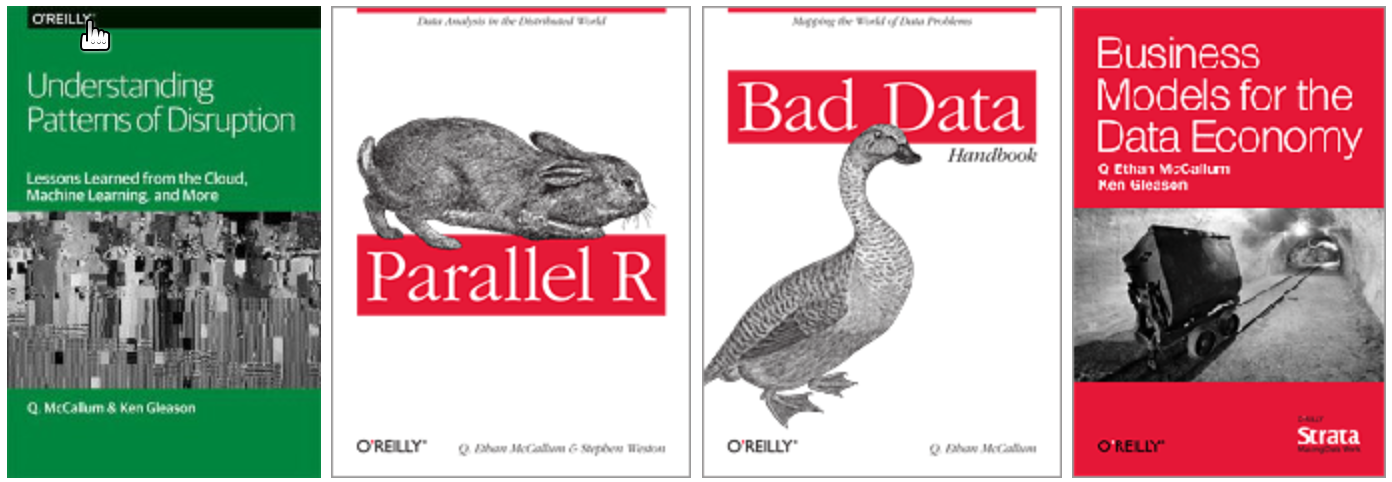I’m Q McCallum. I’m a consultant, writer, and researcher. My work centers on applying emerging, disruptive technology to business use cases.
People mostly know me from my work in machine learning/artificial intelligence (ML/AI). I’ve managed to mix professional experience in that domain with a range of public-facing projects such as books, articles, conference talks, and podcasting.
My technical experience has been shaped by a deep interest in the financial world, which has led me to study risk/complexity, N-sided marketplaces, and asset bubbles.
If you’ve landed on this page you are likely looking for one of the following:
- My consulting practice, through which I apply a risk management approach to AI strategy, product guidance, and due diligence services.
- Complex Machinery, my newsletter on AI, risk, and related topics.
- My blog on a mix of ML/AI, marketplaces, and risk. Popular posts include:
- My guide on how to develop your company’s data/AI strategy (originally published in 2016, and still relevant today)
- How to manage risk in your generative-AI (LLM) chatbots
- Lessons from the Knight Capital meltdown of 2012
- The risks of building services atop hosted, SaaS-style AI model providers
- What to look for in your company’s first data hire
- A series on ideas that AI shops can borrow from algorithmic trading
- A combined 80+ articles on executive-level data literacy and AI-related risk management
- A list of books and articles I’ve published and select speaking engagements.
- My O’Reilly Radar articles, longer reads on topics as varied as remote work, N-sided marketplaces, automated machine learning, and navigating the pandemic.
- My one-pager websites, such as “Will AI Help Here?” and “How Do I Do AI?”
- Block & Mortar, my newsletter on all things web3.
(You’ll want to review the disclaimer before applying any of what you read here.)
